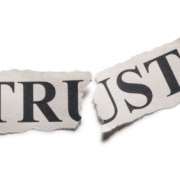When Surveillance Is Self-Defeating

In February, Barclays Bank in the United Kingdom announced that it would end a staff-monitoring scheme after the Trades Union Congress accused the bank of using “dystopian Big Brother employment practices.” However, numerous American other companies have already adopted similar approaches, apparently without facing the same backlash. Last year, The Wall Street Journal detailed similar practices at other organizations including Microsoft and Freddie Mac. These companies are tracking the frequency of all forms of communication to analyze relationships, identify socially influential employees, and identify fraud risk. Some employees have embedded microchips for entering buildings, using vending machines, and more. This future of hyper-surveillance we’re arguably facing, where “technological progress,” according to Bloomberg, “is moderate, but a proliferation of sensors allows firms to create value by capturing and analyzing more information on objects, people and the environment,” suggests that behavioral science will grow in the 2020s. The long-term implications and unintended consequences of this are a very long way from being understood.
Technology has already transformed the workplace, but is still evolving, sharpening paradoxes as it goes. Hyper-transparency, for example, may have granted employees more opportunities to speak up, but it also has allowed employers to aggressively monitor and punish outspoken employees. As Rosemary Baker explained during last year’s Ethical Systems’ Ethics by Design conference, this has resulted in a schizophrenic approach to employee surveillance, particularly in Europe. As financial regulators emphasize the need to gather and retain data about every transaction to track signs of unethical behavior, at both the firm and market level, human rights concerns also gain momentum. Under the European Union’s General Data Protection Regulation, which clearly articulates employee rights around the use and misuse of their personal data,employees are arguably not even able to give meaningful consent to many surveillance practices, given the power imbalance between them and their employers. Privacy regulations are far more limited in the United States, largely for historical reasons. Requirements are more fragmented, and focused on single issues like healthcare data and the protection of children.
Companies themselves are keen to stress that their surveillance measures are designed to help improve work-life balance and increase productivity. However, employer paranoia and liability risk shape surveillance culture considerably. As systems to capture and anticipate wrongdoing, under-performance, and disengagement become more effective, it is unsurprising that both regulators and employers feel obliged to take advantage of them. But as the power of these systems increases, trust between employer and employee becomes more and more frayed, leading employees to become less engaged in resolving ethical issues. Research suggests that constant monitoring also undermines workplace productivity. The situation is likely to get even more disturbing. Facial recognition software is now emerging that claims to be able to read sexuality and emotions, and employer tracking of mental and physical health (even including invasive data on menstruation cycles and weight gain) is also ramping up.
As J.S. Nelson, an Ethical Systems Collaborator, has convincingly argued, we need to ask: Who, exactly, is impacted by these systems, and to what degree? How do they experience surveillance, what message does it send? Is surveillance even necessary, and for what purpose?
Many organizations that have adopted so-called “radical transparency” strategies—including but not limited to Away, Google, Netflix, and Bridgewater—are now experiencing considerable backlash. But in 2020, this is becoming less of a strategic management approach and more of an emerging status quo. As the Barclays example shows, employees are becoming increasingly unhappy about inappropriately intrusive workplaces. Resisting surveillance is becoming a central theme in much existing and emerging employee activism. It turns out that no one wants to live in a fishbowl.
It is far from clear that constant surveillance is in the interest of either employers or employees. By extending their reach further and further into employees’ emotions and health, employers are enhancing their power—but also increasing their obligations. By encouraging employees to bring their “whole selves to work,” they have implied they are willing to take responsibility for every aspect of an employee’s life. This is a step toward what the philosopher Andrew Taggart has called “Total Work,” a world where employees expect their employers to provide things like mental health counselling and to align organizational strategy with employees’ personal values and concerns. In a globalized, multigenerational workforce, the latter is impossible—by definition. It might be better for everyone if we reaffirmed the boundaries between the personal and professional. Organizational values are not just an aggregation of the personal values of employees, and to suggest they are is to doom organizations to endless conflict and negotiation. How we choose to live our lives outside the workplace has to be (within reason) none of our employer’s business.
By pursuing a technocratic approach to behavioral science, focused on manipulating the individual to increase productivity and reduce wrongdoing, we have unwittingly rendered our employees laboratory rats, “nudging” them to go further, faster, for longer. In the process, we have neglected much of the potential of behavioral science to produce workplaces with healthier climates and more motivated employees. We are profoundly influenced by our surroundings, the norms set by our leaders, and the overall meaning we derive from our work. By refocusing on the conditions that create motivation, trust, and fulfillment, we can start to look at how organizations can be more ethical and effective. Digital rights experts have long emphasized that protecting freedom of expression does not happen without protection of privacy. Behavioral ethicists would be well placed to reemphasize to both companies and regulators that healthy cultures need trust and agency, not just tracking and verification.
Alison Taylor is the Executive Director of Ethical Systems. Follow her on Twitter @FollowAlisonT.








